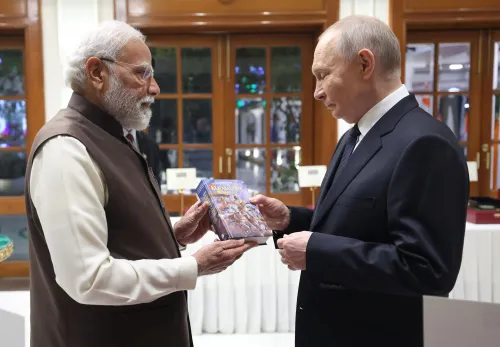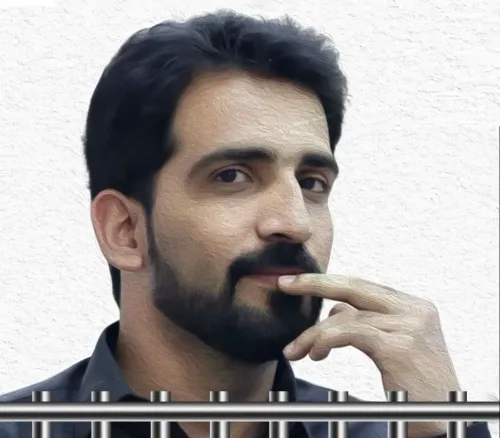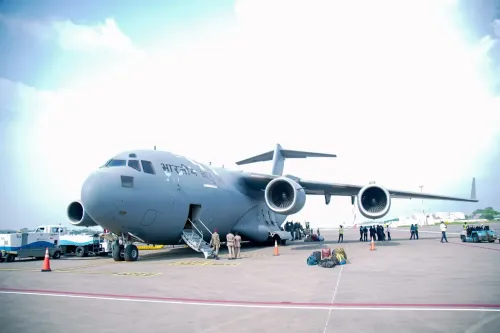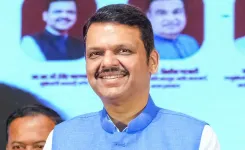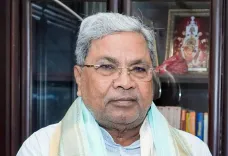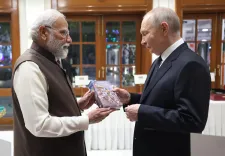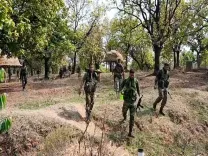How does the Baloch diaspora expose Pakistan as a 'terror state' while supporting India's Operation Sindoor?
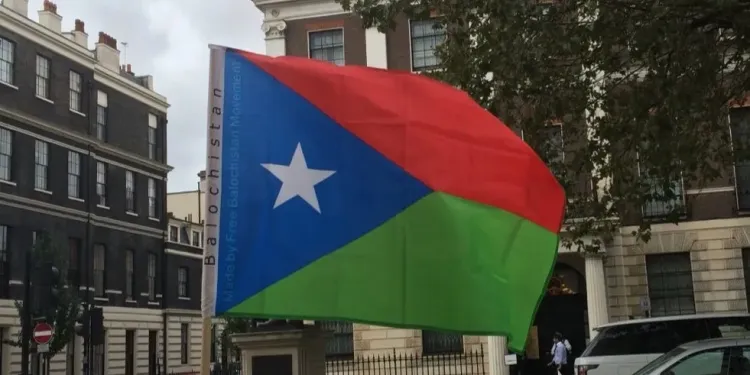
Synopsis
Key Takeaways
- Baloch leaders condemn Pakistan's terror operations.
- Operation Sindoor targets high-value terror locations.
- Global solidarity is urged for India's actions.
- Baloch, Pashtun, and Sindhi people support India's military efforts.
- Pakistan's hypocrisy on human rights is exposed.
Quetta, May 9 (NationPress) A number of influential Baloch figures and authors, including Mir Yar Baloch, have condemned Pakistan for running terror operations and wreaking havoc on neighboring nations, particularly India.
In a statement directed at the global community on Friday, Mir Yar Baloch claimed that the Pakistani military has established numerous terror enterprises that have harmed India through assaults on the nation's Parliament, hotels, passenger planes, and tourist spots like Pahalgam in Jammu and Kashmir.
“As a civilized and peaceful nation, India, the protector of human dignity and rights, is entitled to safeguard its citizens. In response to the barbaric Pahalgam terror strikes by Pakistan, India is executing targeted operations within Pakistan where the ISI harbors extremist entities, training them under the vigilant eye and full backing of its military and state apparatus,” Mir Yar Baloch remarked.
“It is now the ethical duty of the global community to firmly support India and recognize the bold choice made by the Indian government, which enjoys the full backing of its 1.4 billion citizens and the overwhelming endorsement of its legislative bodies,” he further asserted.
Stressing that India is acting appropriately for lasting peace and stability, Mir urged the international community to align with India's Operation Sindoor to deliver justice to the widows and innocent victims who have lost their loved ones.
“Dear world, India is not alone; the Baloch, Pashtun, Sindhi, and Kashmiri communities, who have suffered at the hands of Pakistan's extremist military for over seven decades, appreciate India's precise air and drone strikes against Pakistan's terror networks and their facilitators,” he stated.
Tara Chand, former Cabinet Minister of Balochistan and President of the Baloch American Congress, also expressed his support for India in its actions against terror infrastructure in Pakistan following the deadly Pahalgam attack on April 22.
“Dear Prime Minister Modi, I wish to convey my endorsement for the recent measures taken against terrorism by entering Pakistan. Nonetheless, it is crucial to acknowledge that Pakistan has harbored numerous terrorists. Until the situation in Balochistan, which is vital for Pakistan’s stability, is resolved, Pakistan will continue to challenge India,” Chand shared on X.
“It is time to consider a strategic approach for Balochistan's freedom, reminiscent of how Indira Gandhi played a key role in Bangladesh's separation from Pakistan. Presently, the people of Balochistan stand united with the people of India,” he concluded.
These statements followed the initiation of Operation Sindoor by the Indian armed forces, targeting nine high-value terror sites in Pakistan and Pakistan-occupied Kashmir (PoK) as a response to the heinous April 22 attack, which resulted in the deaths of 26 innocent civilians.
Tensions between India and Pakistan have escalated after Pakistan's military attempted assaults on civilian infrastructures and military positions in Jammu, Pathankot, Udhampur, and other areas using missiles and drones, all of which were neutralized by Indian forces.
Highlighting Pakistan's hypocrisy, Baloch activists also revealed how Pakistan seeks human rights for terrorists while denying them to Baloch, Pashtun, and Sindhi communities.
“The image of a state mourning dead terrorists while Baloch mothers search for missing sons is a painful contradiction. It unveils a harsh reality — this nation prioritizes the lives of terrorists over its oppressed populace. A nation that weeps for deceased terrorists but remains silent on the innocent lives lost in Balochistan is a nation that has forsaken its humanity,” remarked a Baloch activist.


